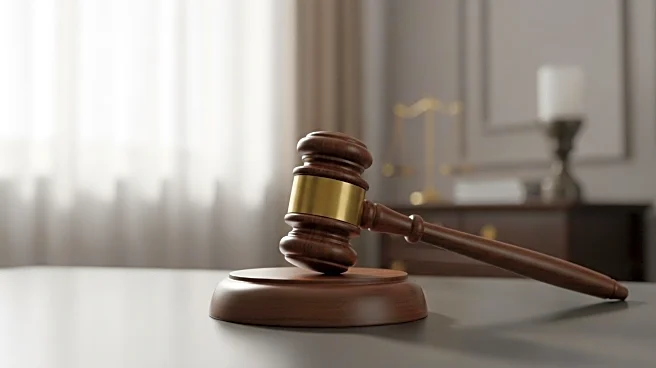What's Happening?
Ryan Routh, charged with the attempted assassination of President Trump, has rested his case after presenting his defense in court. Routh, who is representing himself, called three witnesses, including a former Marine sniper, to testify. The trial, held in Fort Pierce, Florida, has seen federal prosecutors present evidence over seven days, detailing Routh's alleged plan to attack President Trump at his West Palm Beach golf club. Routh has pleaded not guilty to all charges. During the proceedings, Routh faced challenges in adhering to judicial guidelines, leading to interruptions by U.S. District Judge Aileen Cannon. The trial is set to proceed with closing arguments.
Why It's Important?
The trial of Ryan Routh is a significant legal event, highlighting issues of security and legal proceedings involving high-profile figures like President Trump. The case underscores the complexities of self-representation in court and the challenges faced by defendants in navigating legal protocols. The outcome of the trial could have implications for security measures surrounding public figures and influence public discourse on legal processes and justice. Additionally, the trial's progression and verdict may impact perceptions of safety and legal accountability in politically charged environments.
What's Next?
With the defense resting its case, the trial will move to closing arguments, where both sides will summarize their positions for the jury. The jury's deliberation and eventual verdict will be closely watched, as it will determine Routh's legal fate. The trial's conclusion may prompt discussions on security protocols for public figures and the effectiveness of legal representation strategies. Stakeholders, including legal experts and political analysts, will likely analyze the trial's implications for future cases involving threats to high-profile individuals.










